Cervical Cancer
How to submit an article:
- Registered users can submit any published journal article that has a unique DOI (Digital Object Identifier) name or link to Research Hub.
- For example, you can paste the full DOI link:
https://doi.org/10.1109/5.771073or just the DOI name:10.1109/5.771073into the field above and click submit. - The person who is first to submit a valid article to Research Hub will forever be credited for it, and every article submission earns you +6 Research Points.
Sub-Topics:
Related Topics
Published research studies are articles that present the findings of original research that has undergone a peer-review process and has been made publicly available in scholarly journals, books or other media.

Advances on the anti-tumor mechanisms of the carotenoid Crocin
2023 Jun 29 PeerJ Bao X, Hu J, Zhao Y, Jia R, Zhang H, Xia L
Review Article Crocin Liver Cancer Saffron Breast Cancer Stomach Cancer Colorectal Cancer Cervical Cancer Anti-TumourCrocin, a compound derived from saffron, has shown considerable potential in hindering tumor growth and improving immune status, across various malignant tumors.
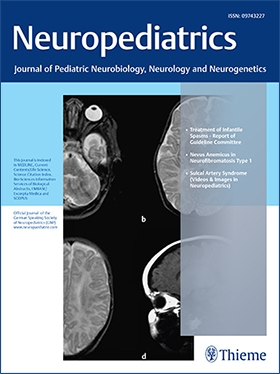
The Effects of Dietary Nutrient Intake on Cervical Cancer: A Brief Review
2023 Apr 24 Neuropediatrics Nath S, Nasrin SS, Samanta A, Nuzhad A, Ghosh P, Manna A, et al.
The study concludes that certain dietary micronutrients can inhibit the development of CC, with different nutrients being effective at different stages of the disease.
Review Article Cervical Cancer Diet Nutrition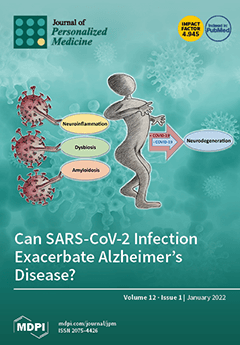
The Association of Four Natural Molecules—EGCG, Folic Acid, Vitamin B12, and HA—To Counteract HPV Cervical Lesions: A Case Report
2023 Mar 22 Journal of Personalized Medicine Grandi G, Botticelli L, Fraia PD, Babalini C, Masini M, Unfer V
Case Report Cervical Lesions Hyaluronic Acid Vitamin B12 Cervical Cancer HA Folic Acid Cervical Dysplasia Green Tea EGCG HPVThe combination of epigallocatechin gallate, vitamin B12, folic acid, and hyaluronic acid could effectively counter precancerous lesions of the uterine cervix caused by HPV infections.
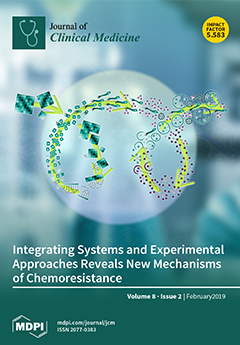
Evaluating the Efficacy of Pervistop®, a New Combination Based on EGCG, Folic Acid, Vitamin B12 and Hyaluronic Acid on Patients with Human Papilloma Virus (HPV) Persistent Infections and Cervical Lesions: A Pilot Study
2023 Mar 10 Journal of Clinical Medicine Aragona C, Bezerra Espinola MS, Bilotta G, Porcaro G, Calcagno M
Randomised Controlled Trial Cervical Dysplasia Vitamin B12 Green Tea HPV Hyaluronic Acid Folic Acid EGCGA combination of epigallocatechin gallate, folic acid, vitamin B12, and hyaluronic acid may effectively clear HPV infections and cervical lesions in women.

Coicis Semen for the treatment of malignant tumors of the female reproductive system: A review of traditional Chinese medicinal uses, phytochemistry, pharmacokinetics, and pharmacodynamics
2023 Feb 23 Frontiers in Pharmacology Pan X, Shen Q, Zhang C, Zhang X, Li Y, Chang Z, et al.
Coicis Semen is an important botanical drug for the clinical treatment of female reproductive system malignancies, and its efficacy has been confirmed in more than 74 TCM clinical trials. These studies have shown that the administration of prescriptions containing Coicis Semen resulted in good therapeutic outcomes in those with cervical cancer, ovarian cancer, endometrial cancer, and other malignant tumors of the female reproductive system by inhibiting the growth of tumors, enhancing immune function, and improving the quality of life.
Review Article Cervical Cancer Anticancer Endometrial Cancer Coix Seed Ovarian CancerResearch insights are moderated by the Research Hub team and offer an at-a-glance overview of interesting research findings.

2023 PeerJ
Crocin, a compound derived from saffron, has shown considerable potential in hindering tumor growth and improving immune status, across various malignant tumors.
Review Article Anti-Tumour Breast Cancer Colorectal Cancer Crocin Liver Cancer
Advances on the anti-tumor mechanisms of the carotenoid Crocin
Bao X, Hu J, Zhao Y, Jia R, Zhang H, Xia L

2023 Journal of Personalized Medicine
The combination of epigallocatechin gallate, vitamin B12, folic acid, and hyaluronic acid could effectively counter precancerous lesions of the uterine cervix caused by HPV infections.
Case Report Cervical Dysplasia Cervical Lesions EGCG Folic Acid Green Tea
The Association of Four Natural Molecules—EGCG, Folic Acid, Vitamin B12, and HA—To Counteract HPV Cervical Lesions: A Case Report
Grandi G, Botticelli L, Fraia PD, Babalini C, Masini M, Unfer V

2023 Journal of Clinical Medicine
A combination of epigallocatechin gallate, folic acid, vitamin B12, and hyaluronic acid may effectively clear HPV infections and cervical lesions in women.
Randomised Controlled Trial Cervical Dysplasia EGCG Folic Acid Green Tea HPV
Evaluating the Efficacy of Pervistop®, a New Combination Based on EGCG, Folic Acid, Vitamin B12 and Hyaluronic Acid on Patients with Human Papilloma Virus (HPV) Persistent Infections and Cervical Lesions: A Pilot Study
Aragona C, Bezerra Espinola MS, Bilotta G, Porcaro G, Calcagno M

2019 BMC Complementary Medicine and Therapies
Coix lacryma-jobi sprout extract effectively inhibits cervical cancer cell growth by triggering cell cycle arrest and apoptosis.
Coix Seed
Coix lacryma-jobi var. ma-yuen Stapf sprout extract induces cell cycle arrest and apoptosis in human cervical carcinoma cells
Son, E.S., Kim, SH., Kim, Y.O. et al
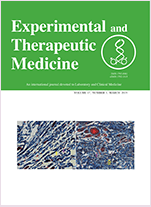
2018 Experimental and Therapeutic Medicine
The polyphenol epigallocatechin-3-gallate (EGCG) inhibits the growth of cervical carcinoma cell lines potentially by altering the expression of micro-RNAs, indicating its potential as an anti-cervical cancer drug.
EGCG HPV
Epigallocatechin gallate inhibits cell growth and regulates miRNA expression in cervical carcinoma cell lines infected with different high‑risk human papillomavirus subtypes
Zhu Y, Huang Y, Liu M, Yan Q, Zhao W, Yang P, et al.
Review Articles
Review articles summarise and critically evaluate the current state of research on a specific topic or field by synthesising multiple primary research studies.

Advances on the anti-tumor mechanisms of the carotenoid Crocin
2023 Jun 29 PeerJ Bao X, Hu J, Zhao Y, Jia R, Zhang H, Xia L
Review Article Crocin Liver Cancer Saffron Breast Cancer Stomach Cancer Colorectal Cancer Cervical Cancer Anti-TumourCrocin, a compound derived from saffron, has shown considerable potential in hindering tumor growth and improving immune status, across various malignant tumors.

The Effects of Dietary Nutrient Intake on Cervical Cancer: A Brief Review
2023 Apr 24 Neuropediatrics Nath S, Nasrin SS, Samanta A, Nuzhad A, Ghosh P, Manna A, et al.
The study concludes that certain dietary micronutrients can inhibit the development of CC, with different nutrients being effective at different stages of the disease.
Review Article Cervical Cancer Diet Nutrition
Coicis Semen for the treatment of malignant tumors of the female reproductive system: A review of traditional Chinese medicinal uses, phytochemistry, pharmacokinetics, and pharmacodynamics
2023 Feb 23 Frontiers in Pharmacology Pan X, Shen Q, Zhang C, Zhang X, Li Y, Chang Z, et al.
Coicis Semen is an important botanical drug for the clinical treatment of female reproductive system malignancies, and its efficacy has been confirmed in more than 74 TCM clinical trials. These studies have shown that the administration of prescriptions containing Coicis Semen resulted in good therapeutic outcomes in those with cervical cancer, ovarian cancer, endometrial cancer, and other malignant tumors of the female reproductive system by inhibiting the growth of tumors, enhancing immune function, and improving the quality of life.
Review Article Cervical Cancer Anticancer Endometrial Cancer Coix Seed Ovarian Cancer
Suppressive Effects of EGCG on Cervical Cancer
2018 Sep 12 Molecules Wang YQ, Lu JL, Liang YR, Li QS
Review Article Cervical Cancer Green Tea Anticancer Women's Health(-)-Epigallocatechingallate (EGCG), a natural product, has potent anti-proliferation, anti-metastasis, and pro-apoptosis effects on cervical cancer cells, enhancing the effects of conventional drugs.
Clinical Trials
Clinical trials are research studies that involve people and are conducted to evaluate the safety and efficacy of new treatments or interventions, such as drugs, medical devices, or behavioural therapies.
Study Protocols
Published study protocols are detailed plans that outline the objectives, methodology, statistical analyses, and organisation of a research study that have been made publicly available for others to review and use as a reference.
Presentation Slides

Review Article
Crocin, a compound derived from saffron, has shown considerable potential in hindering tumor growth and improving immune status, across various malignant tumors.
Bao X, Hu J, Zhao Y, Jia R, Zhang H, Xia L

Case Report
The combination of epigallocatechin gallate, vitamin B12, folic acid, and hyaluronic acid could effectively counter precancerous lesions of the uterine cervix caused by HPV infections.
Grandi G, Botticelli L, Fraia PD, Babalini C, Masini M, Unfer V

Randomised Controlled Trial
A combination of epigallocatechin gallate, folic acid, vitamin B12, and hyaluronic acid may effectively clear HPV infections and cervical lesions in women.
Aragona C, Bezerra Espinola MS, Bilotta G, Porcaro G, Calcagno M

Coix lacryma-jobi sprout extract effectively inhibits cervical cancer cell growth by triggering cell cycle arrest and apoptosis.
Son, E.S., Kim, SH., Kim, Y.O. et al

The polyphenol epigallocatechin-3-gallate (EGCG) inhibits the growth of cervical carcinoma cell lines potentially by altering the expression of micro-RNAs, indicating its potential as an anti-cervical cancer drug.
Zhu Y, Huang Y, Liu M, Yan Q, Zhao W, Yang P, Gao Q, Wei J, Zhao W, Ma L

Review Article
(-)-Epigallocatechingallate (EGCG), a natural product, has potent anti-proliferation, anti-metastasis, and pro-apoptosis effects on cervical cancer cells, enhancing the effects of conventional drugs.
Wang YQ, Lu JL, Liang YR, Li QS
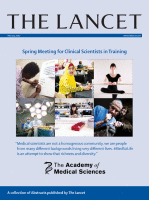
The major bioactive polyphenol in green tea, EGCG, could potentially reverse the abnormal changes induced by oncogenic HPV strains.
Yap J, Luesley D, Woodman C, Dawson C
Executive Summary
Write an executive summary in the form of a blog article on the topic of "Research into Chinese medicine treatment for Cervical Cancer" summarising the research below and using language that can be easily understood by patients and avoiding medical jargon using a professional and caring tone of voice.
Write an executive summary in the form of a blog article on the topic of "Researched Chinese medicine treatments for Cervical Cancer" summarising the research below in an objective and easy to understand way, and using language that can be easily understood by patients. Group the article into Chinese medicine treatments first, followed by nutrition and other treatments. Avoid using medical jargon and use a professional and caring tone of voice.
Write me a concise but easy to understand executive summary on the topic of "Chinese medicine treatments for Cervical Cancer" based on the following research that I will give you. Your summary should be 2 paragraphs long in Australian English spelling and include references to the studies.
A Review Article published in 2023 in the journal PeerJ found that Crocin, a compound derived from saffron, has shown considerable potential in hindering tumor growth and improving immune status, across various malignant tumors. The methodology for the study involved an in-depth review of modern pharmacological studies that have analyzed the therapeutic effects of crocin, a natural compound that can be extracted from saffron. Various anti-tumor effects were assessed including the induction of tumor cell death (apoptosis), restrictions on tumor cell proliferation, and potential barriers to invasion and metastasis of these cells. The potential for enhancement of sensitivity to chemotherapy and improvement of immune status were also examined. Following the review, the study revealed that crocin has significant anti-tumor properties. It showed that this natural compound can induce apoptosis in tumor cells, inhibit their expansion and progression, and even prevent their invasiveness and metastasis. Furthermore, crocin demonstrated the potential to enhance the body’s responsiveness to chemotherapy and help boost the immune system. These effects were observed across a range of different malignant tumors, including stomach, liver, cervical, breast, and colorectal cancers.
A Case Report published in 2023 in the journal Journal of Personalized Medicine found that The combination of epigallocatechin gallate, vitamin B12, folic acid, and hyaluronic acid could effectively counter precancerous lesions of the uterine cervix caused by HPV infections. The methodology used in this research centred around treating a 39-year-old patient who had a history of HPV, cervix lesions, and multiple failed surgical attempts to treat the condition. The treatment plan applied was unique, utilizing a blend of epigallocatechin gallate, vitamin B12, folic acid, and hyaluronic acid, administered over an eight week period. The results showed promising effects, with the patient's histological and cytological analyses revealing only a chronic cervicitis instead of any malignant lesions or cellular dysplasia. Therefore, the necessity for invasive total hysterectomy was minimized, demonstrating the potential for the selected treatment plan to manage precancerous lesions of the uterine cervix.
A Randomised Controlled Trial published in 2023 in the journal Journal of Clinical Medicine found that A combination of epigallocatechin gallate, folic acid, vitamin B12, and hyaluronic acid may effectively clear HPV infections and cervical lesions in women. Forty women with persistent HPV infections and cervical lesions were enrolled in this study and were then divided into two groups. Women in the treatment group were given a 12-week treatment comprising of 200mg epigallocatechin gallate, 400µg folic acid, 1mg vitamin B12, and 50mg hyaluronic acid. In contrast, the control group received no treatment. A significant difference was noted between the two groups post-treatment. In the control group, the majority of women still had a Low-Grade Squamous Intraepithelial Lesion (LSIL) at the close of the study, with varying changes in viral DNA content. However, in the case of the treated group, most women had achieved full viral clearance, showing no signs of lesions post-treatment, thus highlighting the potential effectiveness of the treatment combination.
A published in 2019 in the journal BMC Complementary Medicine and Therapies found that Coix lacryma-jobi sprout extract effectively inhibits cervical cancer cell growth by triggering cell cycle arrest and apoptosis. In the methodology, the research used human cervical cancer HeLa cells to investigate the effects of Coix lacryma-jobi sprout extract (CLSE). The researchers conducted a test known as Cell Counting Kit-8 assay to observe the activity of CLSE on cell multiplication. Flow-cytometric analysis and western blot analysis were also used to examine the impact of CLSE on the regulation of the cell cycle and apoptosis (cell death) in the HeLa cells. In terms of the results, it was found that CLSE significantly halted cell proliferation, and promoted cell cycle arrest in the HeLa cells. This arrest was associated with downregulation of certain key proteins involved in cell cycle regulation. Additionally, CLSE was seen to induce apoptosis, demonstrated by specific staining techniques used to observe nuclear DNA fragmentation. The induction of apoptosis was tied to the inhibition of certain anti-apoptotic proteins and the upregulation of apoptotic proteins. Lastly, it was observed that CLSE deactivated certain key pathways in HeLa cells. As a conclusion, CLSE's therapeutic potential against cervical cancer was emphasized due to these anti-cancer effects.
A published in 2018 in the journal Experimental and Therapeutic Medicine found that The polyphenol epigallocatechin-3-gallate (EGCG) inhibits the growth of cervical carcinoma cell lines potentially by altering the expression of micro-RNAs, indicating its potential as an anti-cervical cancer drug. In the methodology, an MTT assay was used to measure cell proliferation and examine the inhibitory effects of EGCG, a polyphenol, on the growth of cervical carcinoma for HeLa cells subjected to a range of EGCG concentrations. The study also assessed the associated regulation of various microRNA expression involving HeLa, SiHa, CaSki and C33A cell lines, using quantitative polymerase chain reaction (PCR) analyses. The results revealed that the growth of HeLa cells was significantly reduced by EGCG in a dose- and time-dependent manner. Further, the study found noteworthy changes in the expression of particular microRNAs in various cell lines due to EGCG treatment. It was observed that certain microRNAs were significantly downregulated while others were upregulated. Therefore, the study suggests that EGCG likely suppresses the growth of cervical carcinoma cells by potentially regulating the expression of micro-RNAs.
A Review Article published in 2018 in the journal Molecules found that (-)-Epigallocatechingallate (EGCG), a natural product, has potent anti-proliferation, anti-metastasis, and pro-apoptosis effects on cervical cancer cells, enhancing the effects of conventional drugs. This research paper discusses the potential of (-)-epigallocatechingallate (EGCG), a naturally occurring compound, as an anti-cancer treatment for cervical cancer. Traditional treatment methods involve the use of chemotherapy, but these have high toxicity and numerous side effects. The inherent low toxicity of EGCG makes it a promising alternative for treatment. The paper reviews the mechanisms by which EGCG inhibits the growth and spread of cervical cancer cells and promotes their apoptosis. Furthermore, the synergistic pharmaceutical effects of EGCG with conventional agents including cisplatin and bleomycin, have been evaluated. For the discussion of results, the research shows significant evidence of EGCG's abilities to inhibit growth and spread of cervical cancer cells as well as initiate programmed cell death, or apoptosis. The compound's synergistic properties when paired with conventional chemotherapy drugs such as cisplatin and bleomycin, further enhance its potential as a treatment method. The review also explains the underlying processes by which EGCG performs these roles, providing a comprehensive view on its potential applications in cervical cancer treatment.
A published in 2017 in the journal The Lancet found that The major bioactive polyphenol in green tea, EGCG, could potentially reverse the abnormal changes induced by oncogenic HPV strains. Methodology: This research involved organotypic raft cultures of keratinocytes infected with HPV18. The culture was established at an air-liquid interface for 10 days and then treated with EGCG for an additional 10 days. The treated raft sections were stained using antibodies specifically targeting cell proliferation, keratinocyte differentiation markers, and tumor suppressor genes. Further, western blotting was utilized on EGCG-treated cells to determine the levels of HPV18 E6 and E7 protein expression. Results: It was observed that the EGCG treatment blocked the ability of HPV18-positive keratinocytes to produce hyperplastic epithelium within the raft culture. EGCG allowed for a decline in cell proliferation as confirmed by bromodeoxyuridine label incorporation and Ki67 staining, and it led to the upregulated expression of various tumor suppressor genes. Meanwhile, productive viral replication was impaired. Importantly, the treatment did not significantly impact keratinocyte differentiation. Rather, EGCG treatment in the culture encouraged the degradation of E6 and E7 proteins and reinstated the tumor suppressor gene expression.
Moderation Tools
Topic
Sign In
Users not signed in are limited to viewing the 5 most recent items of content.